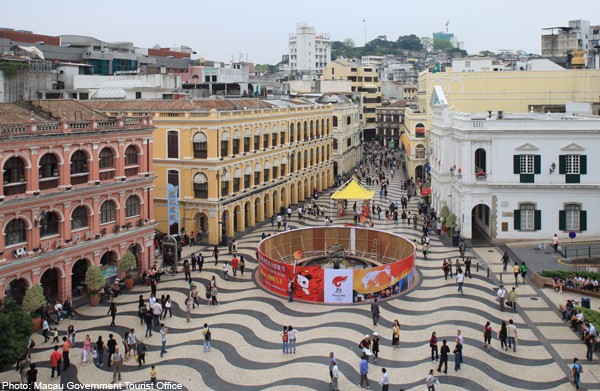Macau a safe bet despite rise in democracy voices

When Chinese President Xi Jinping arrives in Macau today, he will be greeted by pomp and pageantry as befits his status as the head of state.
He will also be given a petition drafted by pro-democracy legislators asking for Macau to start the process of electoral reform, and allow its 631,000 people to eventually obtain universal suffrage.
But it will most likely be ignored. Ahead of the 15th anniversary of Macau's handover from Portuguese to Chinese rule, officials have hailed the "successful" implementation of the "one country, two systems" (1C2S) model there.
With Hong Kong deemed recalcitrant following the 79-day Occupy movement to demand greater political freedom that ended on Monday, its younger, less prominent special administrative region sibling has stepped up as the poster child for the 1C2S framework.
Earlier this month, Beijing's representative in Macau praised it for how the "entire community adheres to, supports, learns and promotes the Basic Law", its mini-Constitution. "In Macau, anyone who says the Basic Law is not good is despised like a street rat," its Liaison Office director Li Gang told Xinhua news agency.
Chief Executive Fernando Chui said Macau's handover had been achieved "not only jurisprudentially, but also in terms of people's hearts".
With the Macanese showing little desire for democratisation before Macau's handover, its Basic Law, unlike Hong Kong's, does not include any pledges of universal suffrage.
But there are signs that attitudes are gradually changing.
A younger generation of Macanese is clamouring for more political freedoms and changes to how their chief executive is to be selected, say some.
"Attitudes among the young are changing, as the local identity is getting stronger," says activist Jason Chao, 28, who organised an unofficial referendum in August. Among nearly 9,000 who voted, 89 per cent said they do not trust Mr Chui, re-elected unopposed by a committee of 400 this year.
Another survey by the University of Hong Kong out this week showed 61 per cent support having universal suffrage.
Among reasons for the trend given by those interviewed are: the proportion of post-1980s born in Macau instead of the mainland is growing; the influence of Hong Kong; and Macau's economy today.
By most benchmarks, it has flourished under Chinese rule, and is cited by pro-establishment academics as evidence of 1C2S's success in Macau.
Propelled by the gaming industry, the economy expanded six times in the past 15 years, notes Professor Ieong Wan Chong, chairman of the Macau Economic Association.
But some argue this has meant little to the people. Median wages increased three times the past 15 years but gains are reduced by inflation, forecast to hit 6.1 per cent this year, and soaring housing prices.
This is why greater democratic rights are necessary, argue the activists, saying this will reduce "collusion" between the government and casino and property tycoons and increase accountability.
Acknowledging the "livelihood problems", Professor Leng Tiexun, deputy director of the One Country, Two Systems Research Centre, said this was why political reform had to go on the backburner.
Despite the rise of pro-democracy voices, however, surveys show a majority think the 1C2S has been "successful", with 82.1 per cent saying they are "proud to be Chinese".
Mr Chao himself admits that a Hong Kong-style Occupy movement is unlikely to materialise in Macau soon.
Says university student Demi Sou, 22: "I feel quite good being a Chinese as it has developed amazingly. And I think Macau cannot prosper like this without support from China.
"Of course democracy is desirable but it should be earned step by step. Protests will only damage Macau's livelihood."
And that, surely, will be music to Mr Xi's ears.
xueying@sph.com.sg
Additional reporting by Pearl Liu

This article was first published on December 19, 2014.
Get a copy of The Straits Times or go to straitstimes.com for more stories.